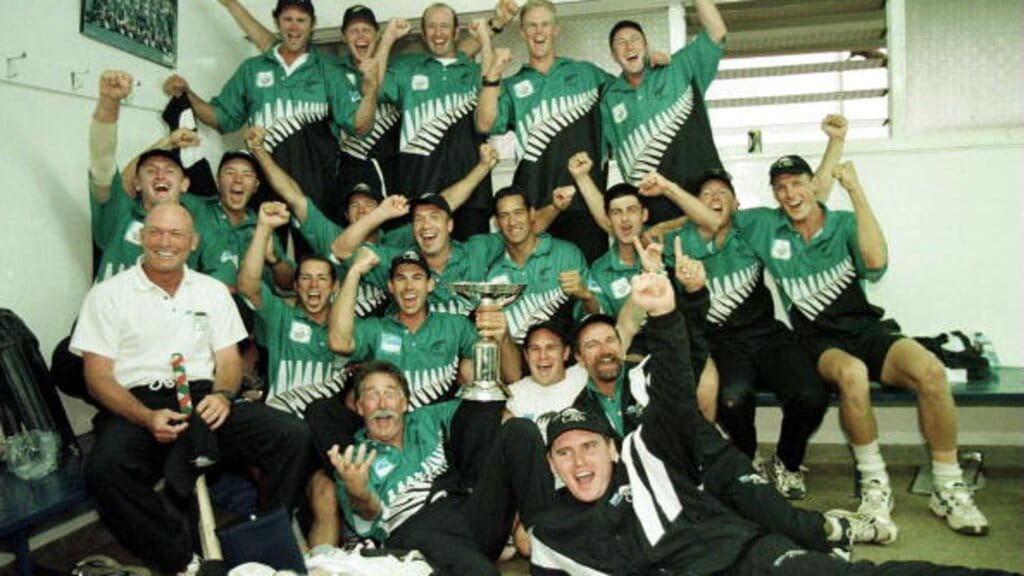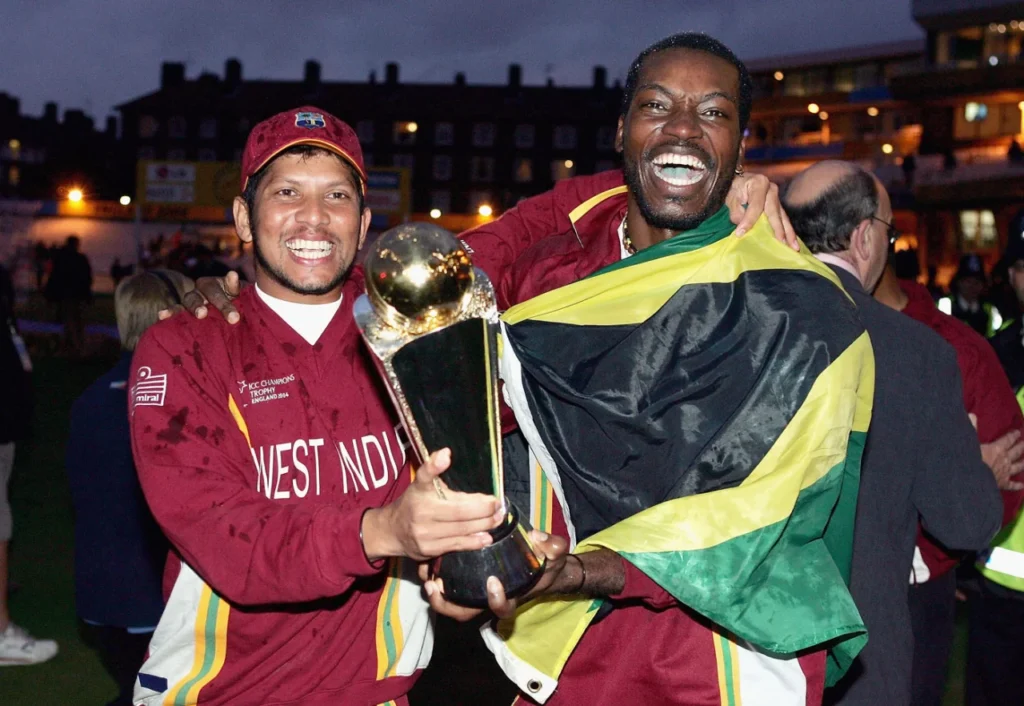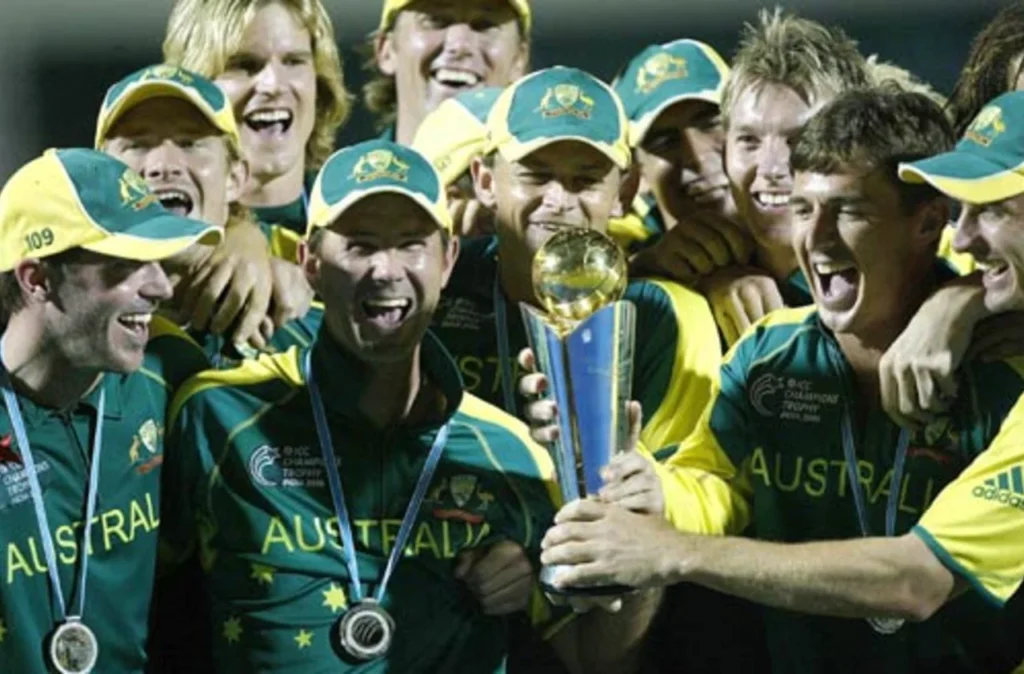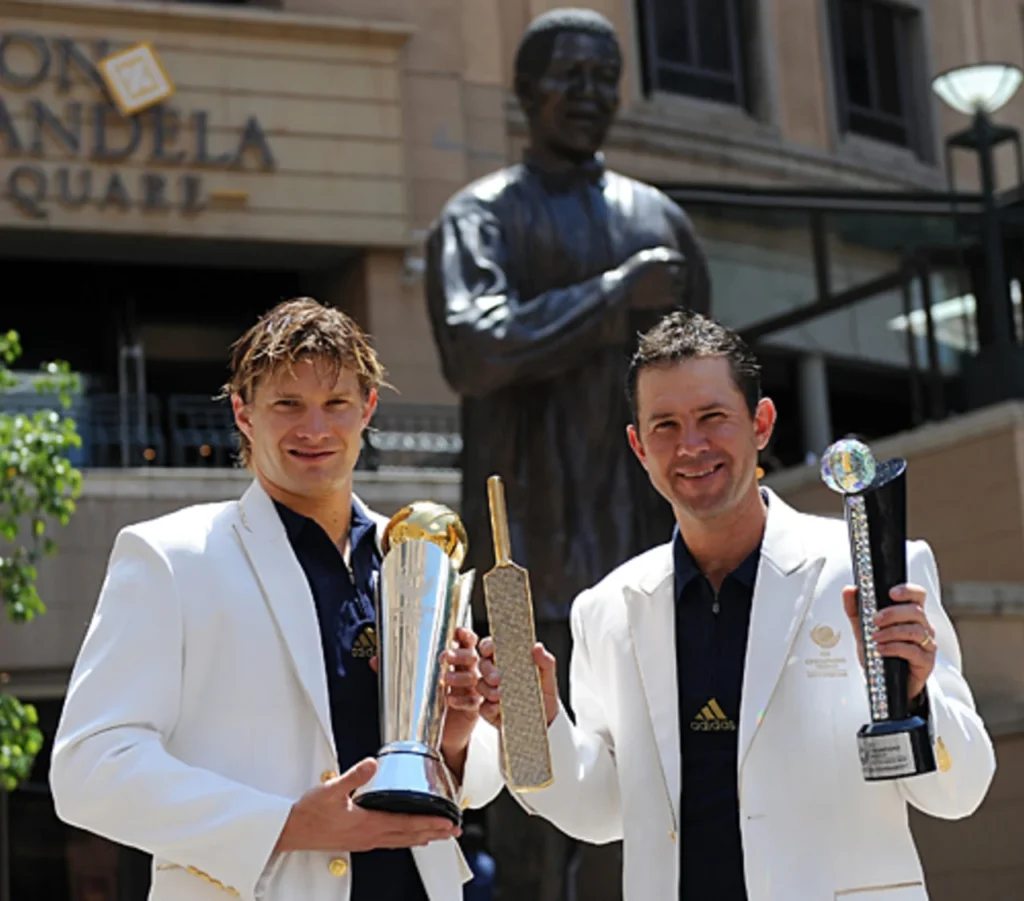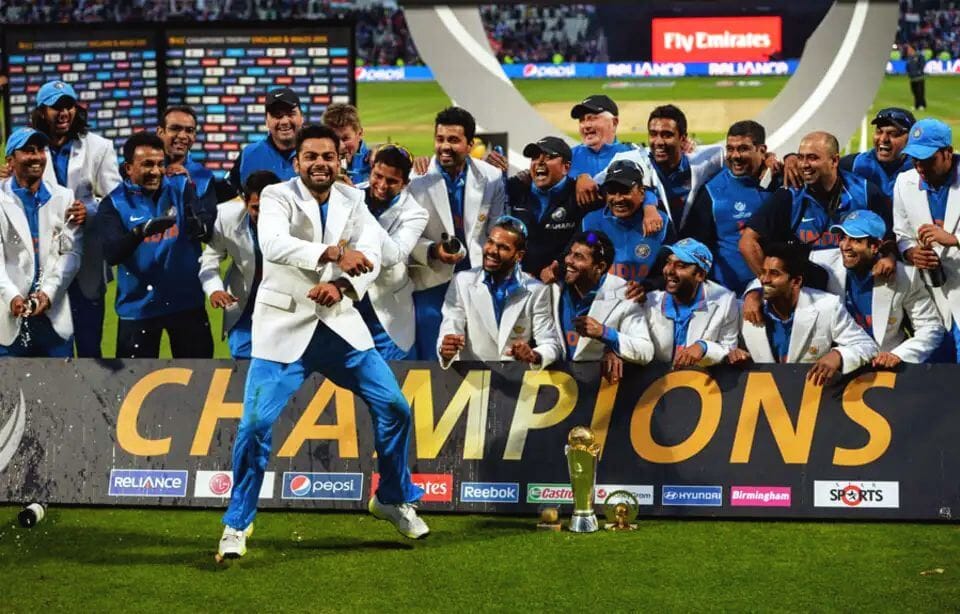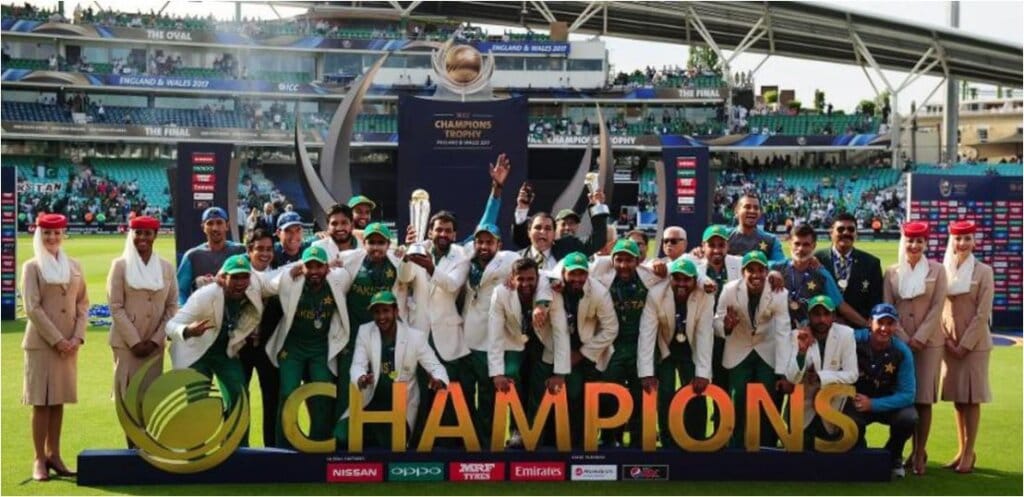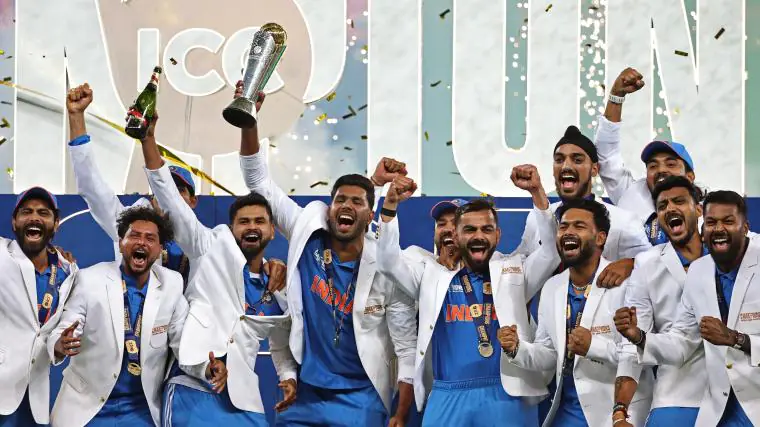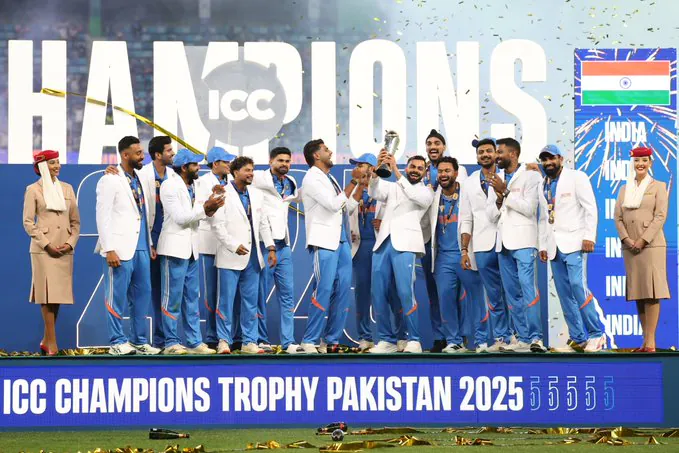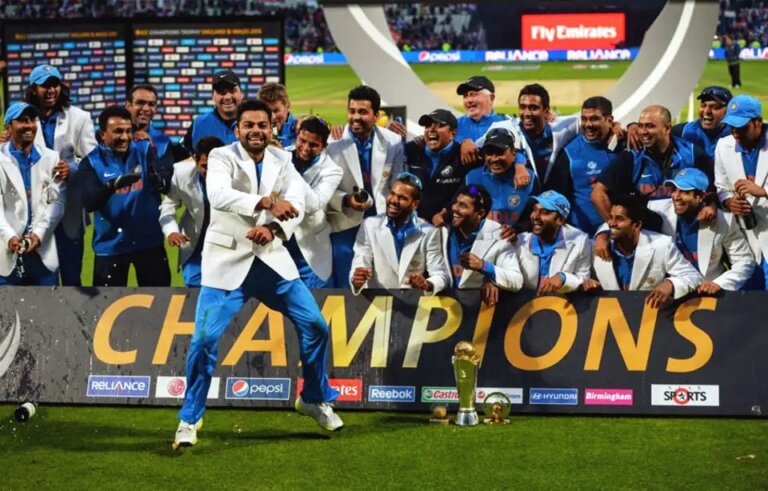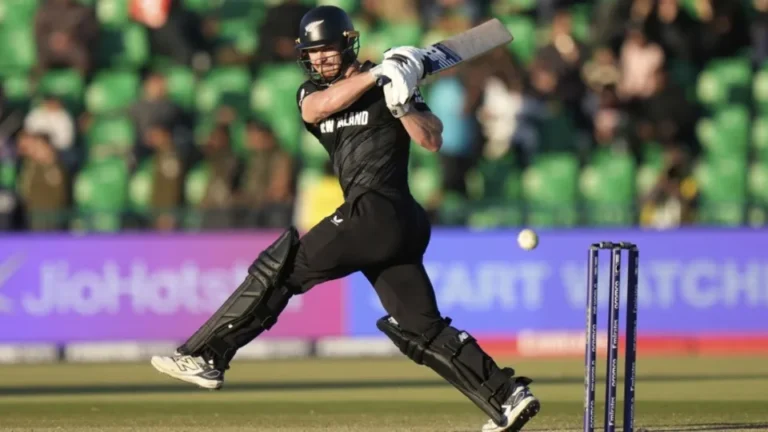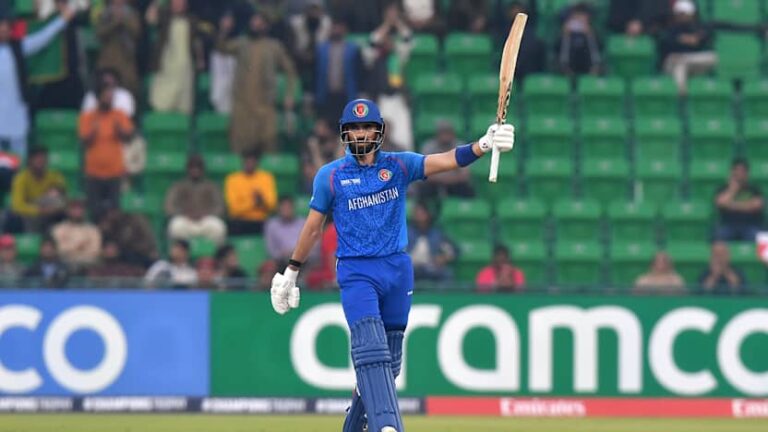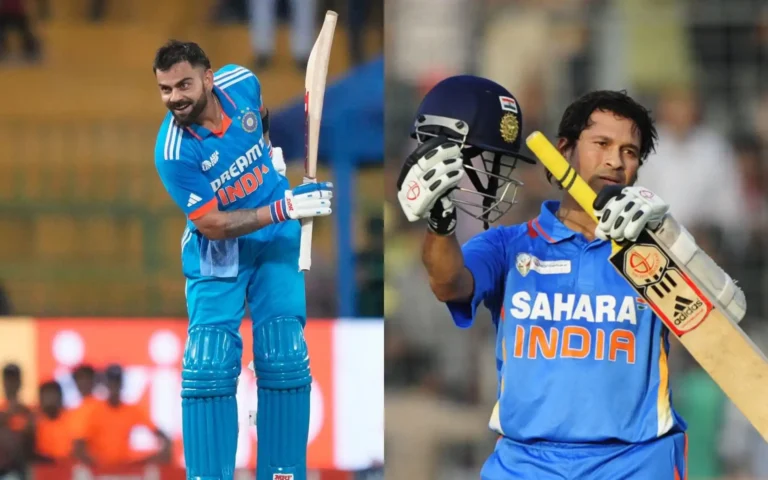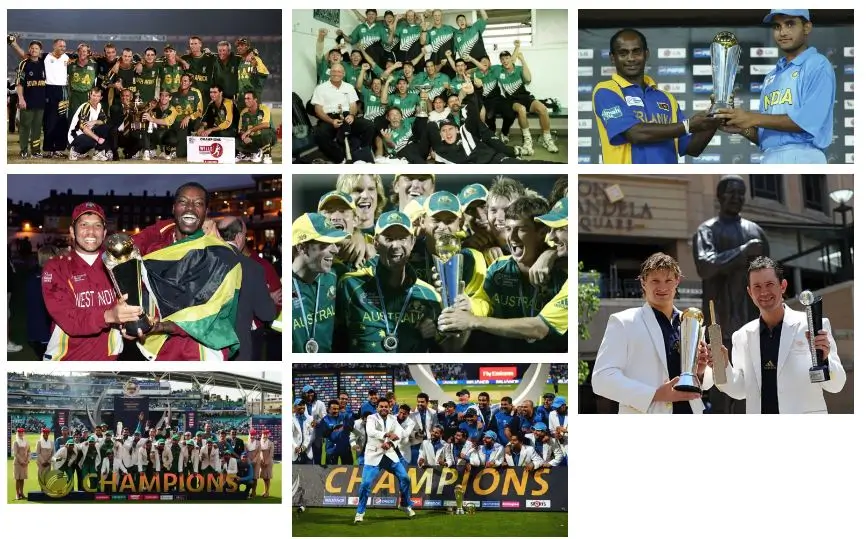
The ICC Champions Trophy, often dubbed the “Mini World Cup,” is a premier One Day International (ODI) cricket tournament organized by the International Cricket Council (ICC). Inaugurated in 1998 as the ICC KnockOut Trophy, its primary objective was to generate funds for developing cricket in non-Test-playing nations. The tournament was rebranded as the ICC Champions Trophy in 2002.
Over the years, the Champions Trophy has evolved in format and significance. Initially, it featured all ICC full members and some associate members, but since 2009, only the top eight teams in the ICC ODI Rankings have participated, ensuring a highly competitive environment. The tournament is held every four years, with the next edition scheduled for 2025 in Pakistan.
This article aims to provide a comprehensive statistical overview of the ICC Champions Trophy’s history, highlighting key moments, top performers, and notable records that have defined the tournament since its inception.
The Origins of the ICC Champions Trophy
The ICC Champions Trophy, originally known as the ICC KnockOut, was conceived by the International Cricket Council (ICC) as a shorter alternative to the Cricket World Cup. The primary objective was to raise funds for the development of cricket in non-Test-playing nations.
The inaugural tournament took place in 1998 in Dhaka, Bangladesh, marking a significant moment as it was the first major ICC event hosted by an Associate member nation. This decision aimed to increase the popularity of cricket in countries where the sport was still developing.
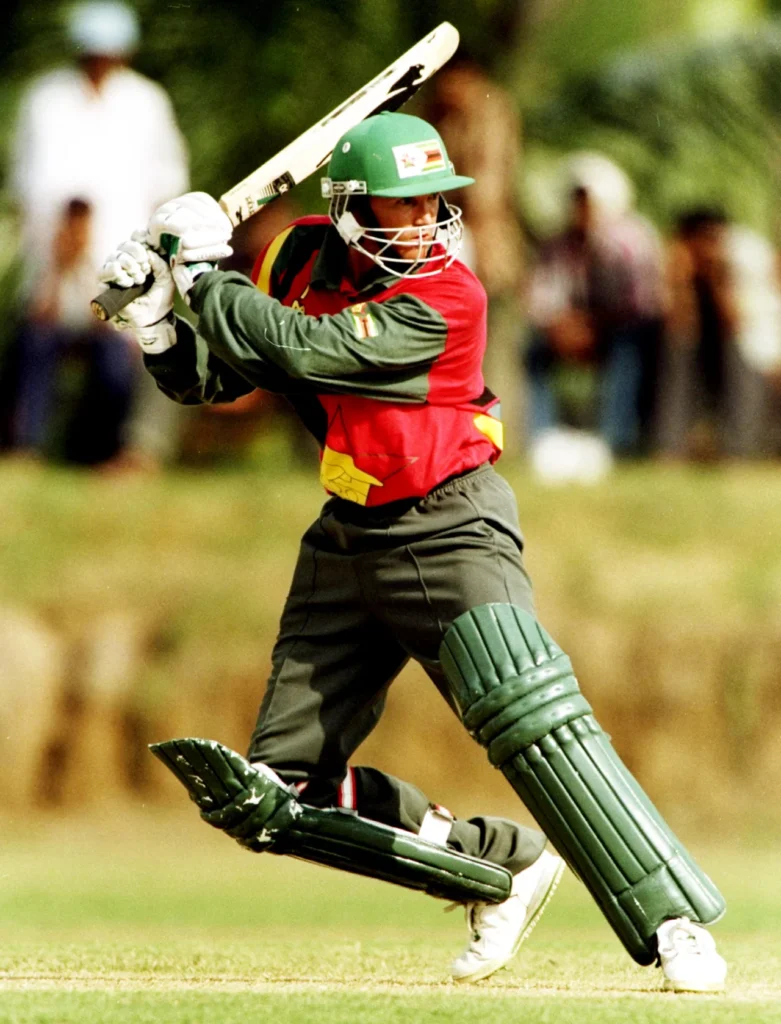
The 1998 ICC KnockOut featured nine teams: Australia, India, South Africa, Pakistan, Sri Lanka, West Indies, England, New Zealand, and Zimbabwe. South Africa emerged victorious, defeating the West Indies in the final by four wickets.
The success of the inaugural tournament set the stage for subsequent editions, establishing the ICC Champions Trophy as a prominent event in the international cricket calendar.
Key Milestones
The ICC Champions Trophy, originally known as the ICC KnockOut Tournament, has been a stage for numerous memorable moments and has undergone significant transformations since its inception. Let’s delve into some key milestones and the evolution of the tournament’s format and name.
Key Milestones in ICC Champions Trophy History
| Year | Milestone | Details |
|---|---|---|
| 1998 | Inaugural Tournament and South Africa’s Victory | The first ICC KnockOut Tournament was held in Dhaka, Bangladesh. South Africa clinched the title by defeating the West Indies in the final, marking their first major ICC trophy win. |
| 2002 | Shared Trophy Between India and Sri Lanka | Hosted in Colombo, Sri Lanka, the final between India and Sri Lanka was washed out twice due to rain, leading to both teams being declared joint winners. |
| 2013 | India’s Unbeaten Campaign | Under the leadership of MS Dhoni, India remained undefeated throughout the tournament in England and Wales. In a rain-affected final against England at Edgbaston, India secured a thrilling 5-run victory, with Ravindra Jadeja’s all-round performance being pivotal. |
| 2017 | Pakistan’s Historic Win Over India | The final at The Oval saw Pakistan deliver a commanding performance against arch-rivals India, posting a formidable total of 338/4. They bowled out India for 158, securing a resounding 180-run victory and their first Champions Trophy title. |
Evolution of the Tournament’s Format and Name
The ICC Champions Trophy has seen several changes in its structure and nomenclature over the years:
- 1998: Introduced as the ICC KnockOut Tournament, it featured a straightforward knockout format with nine teams participating.
- 2002: Renamed the ICC Champions Trophy, the tournament adopted a round-robin format followed by semi-finals and a final, allowing teams more opportunities to compete.
- 2004: The format was adjusted to include 12 teams divided into four pools of three. Each team played two pool matches, with the top team from each pool advancing to the semi-finals.
- 2009: The tournament was further streamlined to feature the top eight ODI teams, divided into two groups of four, with the top two from each group progressing to the semi-finals.
- 2025: After an eight-year hiatus, the Champions Trophy is set to return, maintaining the eight-team format. Notably, due to geopolitical considerations, all matches involving India will be held in Dubai, while other matches will take place in Pakistan.
These milestones and changes reflect the dynamic nature of the ICC Champions Trophy, showcasing its ability to adapt and provide thrilling cricketing action over the years.
Statistical Overview
The ICC Champions Trophy, often dubbed the “Mini World Cup,” has showcased thrilling cricketing action since its inception in 1998. As we anticipate the 2025 edition, let’s delve into the tournament’s rich history, highlighting the winning teams, top performers, and memorable matches that have defined this prestigious event.
Winning Teams and Titles
Over the years, several nations have etched their names on the Champions Trophy, with India and Australia leading the pack with two titles each. The following table summarizes the winners of each edition:
| Year | Host Nation(s) | Winner | Runner-up | Result |
|---|---|---|---|---|
| 1998 | Bangladesh | South Africa | West Indies | South Africa won by 4 wickets |
| 2000 | Kenya | New Zealand | India | New Zealand won by 4 wickets |
| 2002 | Sri Lanka | India & Sri Lanka | N/A | Declared co-champions due to rain |
| 2004 | England | West Indies | England | West Indies won by 2 wickets |
| 2006 | India | Australia | West Indies | Australia won by 8 wickets (D/L method) |
| 2009 | South Africa | Australia | New Zealand | Australia won by 6 wickets |
| 2013 | England and Wales | India | England | India won by 5 runs |
| 2017 | England and Wales | Pakistan | India | Pakistan won by 180 runs |
Note: The 2002 final between India and Sri Lanka was washed out twice, leading to both teams being declared co-champions.
Top Performers
The Champions Trophy has witnessed stellar individual performances that have left an indelible mark on cricket history.
Highest Run-Scorers:
- Chris Gayle (West Indies): Accumulated 791 runs between 2002 and 2013, making him the tournament’s leading run-scorer.
- Mahela Jayawardene (Sri Lanka): Scored 742 runs across 22 matches, showcasing remarkable consistency.
- Shikhar Dhawan (India): Amassed 701 runs in just 10 matches, boasting an impressive average of 77.89.
Top Wicket-Takers:
- Kyle Mills (New Zealand): Claimed 28 wickets in 15 games, with an outstanding average of 17.25.
- Lasith Malinga (Sri Lanka): Took 25 wickets in 16 matches, renowned for his lethal yorkers and unique bowling style.
- Muttiah Muralitharan (Sri Lanka): Secured 24 wickets, leaving a lasting legacy as one of the greatest spinners in cricket history.
Memorable Matches
The Champions Trophy has been the stage for numerous unforgettable encounters:
- 2004 Final – West Indies vs. England: In a nail-biting finish, West Indies clinched victory by 2 wickets, chasing down England’s total of 217. The match is remembered for its dramatic twists and turns, epitomizing the unpredictability of ODI cricket.
- 2017 Final – Pakistan vs. India: Pakistan delivered a stellar performance, posting a formidable total of 338/4. India, in response, was bowled out for 158, handing Pakistan a resounding 180-run victory. This match not only showcased Pakistan’s cricketing prowess but also intensified the storied rivalry between the two nations.
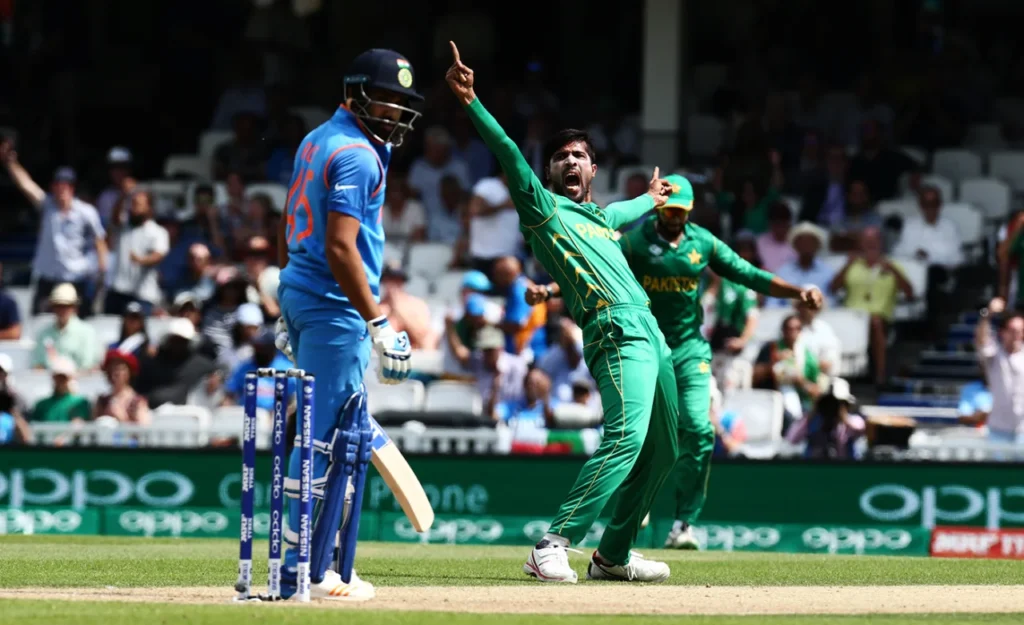
As we look forward to the 2025 ICC Champions Trophy, fans worldwide eagerly anticipate more such thrilling contests and record-breaking performances. The tournament continues to be a celebration of cricketing excellence, uniting nations through the love of the game.
Tournament Records
The ICC Champions Trophy has been a stage for numerous remarkable performances and records. Here’s an overview of some of the most notable tournament records:
Highest Team Totals:
| Team | Score | Opponent | Year |
|---|---|---|---|
| New Zealand | 347/4 | USA | 2004 |
| India | 331/7 | South Africa | 2002 |
| Sri Lanka | 319/8 | Netherlands | 2002 |
New Zealand’s formidable total of 347/4 against the USA in 2004 stands as the highest team score in the tournament’s history.
Lowest Team Totals:
| Team | Score | Opponent | Year |
|---|---|---|---|
| USA | 65 | Australia | 2004 |
| Bangladesh | 77 | New Zealand | 2002 |
| Kenya | 80 | India | 2000 |
The USA’s total of 65 against Australia in 2004 is the lowest team score recorded in the tournament.
Best Individual Performances:
- Highest Individual Scores:
| Player | Runs | Opponent | Year |
|---|---|---|---|
| Nathan Astle | 145* | USA | 2004 |
| Andy Flower | 145 | India | 2002 |
| Sourav Ganguly | 141* | South Africa | 2000 |
Nathan Astle’s unbeaten 145 against the USA in 2004 remains one of the standout individual batting performances.
- Best Bowling Figures:
| Player | Figures | Opponent | Year |
|---|---|---|---|
| Farveez Maharoof | 6/14 | West Indies | 2006 |
| Mervyn Dillon | 5/29 | Bangladesh | 2004 |
| Josh Hazlewood | 5/31 | New Zealand | 2017 |
Farveez Maharoof’s 6/14 against the West Indies in 2006 stands as the best bowling performance in a match.
Milestones:
- First Century: Sourav Ganguly was among the first players to score a century in the ICC Champions Trophy, achieving this feat in the 2000 edition.
- First Hat-Trick: While specific details of the first hat-trick in the ICC Champions Trophy are not readily available, the tournament has witnessed several remarkable bowling performances over the years.
- Fastest 50/100: Records for the fastest fifties and centuries in the ICC Champions Trophy highlight the aggressive batting displays that have thrilled fans throughout the tournament’s history.
These records encapsulate the thrilling moments and exceptional talents that have graced the ICC Champions Trophy over the years.
Interesting Fact
The ICC Champions Trophy, since its inception in 1998, has been a stage for numerous memorable and unique cricketing moments. Here are some intriguing facts and trivia that highlight the tournament’s rich history:
1. Origins and Evolution
- Initial Format: The tournament began as the “ICC KnockOut Trophy” in 1998, featuring a straightforward knockout format. It was rebranded as the “ICC Champions Trophy” in 2002.
2. Unique Team Participations
- Associate Nations: The 2004 edition saw the United States making their One Day International debut, participating alongside cricketing giants.
3. Record-Breaking Performances
- Prolific Scorer: West Indies’ Chris Gayle holds the record for the most runs in the tournament’s history, amassing 791 runs between 2002 and 2013.
- Hat-Trick Feat: Jerome Taylor of the West Indies achieved the first hat-trick in Champions Trophy history against Australia in 2006.
4. Memorable Matches
- Tied Encounter: The 2002 final between India and Sri Lanka ended without a result due to rain, leading to both teams being declared joint winners.
- Surprising Upsets: In the 2017 edition, Pakistan, the lowest-ranked team, clinched their first Champions Trophy title by defeating India in the final.
5. Young Achievers
- Youngest Centurion: Bangladesh’s Shahriar Nafees became the youngest player to score a century in the tournament at 20 years and 261 days during the 2006 edition.
6. Tournament Records
- Highest Individual Score: New Zealand’s Nathan Astle scored 145* against the United States in 2004, marking the highest individual score in the tournament’s history.
- Bowling Brilliance: Sri Lanka’s Farveez Maharoof recorded the best bowling figures in a Champions Trophy match with 6 wickets for 14 runs against the West Indies in 2006.
7. Tournament Hiatus and Return
- Hiatus: After the 2017 edition, the ICC Champions Trophy was not held for several years.
- Return: The tournament is set to make a comeback in 2025, with Pakistan as the host nation.
These facts underscore the ICC Champions Trophy’s significance in cricket history, showcasing remarkable performances and unforgettable moments that have left an indelible mark on the sport.
Impact on Cricket
The ICC Champions Trophy, inaugurated in 1998, has played a pivotal role in shaping One Day International (ODI) cricket. Its impact can be observed in several key areas:
1. Elevating ODI Competitiveness
The Champions Trophy introduced a high-stakes environment where top cricketing nations competed in a condensed format. This structure intensified the level of competition, as each match carried significant weight, thereby enhancing the overall quality and excitement of ODI cricket. The tournament’s success demonstrated the viability of shorter, more frequent international competitions, influencing the scheduling and format of subsequent ODI events.
2. Precursor to the T20 World Cup
While the Champions Trophy itself was an ODI tournament, its success and the appetite it generated for shorter, high-intensity competitions contributed to the conceptualization of the T20 format on a global stage. The International Cricket Council (ICC) recognized the potential for an even more abbreviated format, leading to the inauguration of the ICC T20 World Cup in 2007. The Champions Trophy thus indirectly paved the way for the T20 revolution, which has since become a central part of international cricket.
3. Platform for Associate Nations
In its early editions, the Champions Trophy was inclusive of associate member nations, providing them with a rare opportunity to compete against top-tier teams on an international stage. For instance, the 2004 tournament featured the United States making their One Day International debut. Such inclusivity not only offered invaluable experience to emerging cricketing nations but also helped in globalizing the sport by showcasing diverse talents and fostering competitive spirit across different countries.
Future of the ICC Champions Trophy
The ICC Champions Trophy is set to make a significant return in 2025 after an eight-year hiatus since its last edition in 2017. This comeback not only rekindles the excitement associated with this prestigious tournament but also presents opportunities to enhance its legacy in the evolving cricket landscape.
Return in 2025 After 2017 Hiatus
The 2025 ICC Champions Trophy is scheduled from February 19 to March 9, marking Pakistan’s first time hosting a major global cricket event since co-hosting the 1996 World Cup. This tournament will feature eight top-ranked teams competing in a format similar to previous editions, with two groups of four teams each, leading to semi-finals and a final.
Speculation on Upcoming Tournaments Enhancing Its Legacy
The revival of the Champions Trophy in 2025 is poised to add new chapters to its storied history:
- Showcasing Emerging Talent: The tournament offers a platform for rising stars to shine on an international stage, potentially leading to memorable performances that become part of cricket folklore.
- Strengthening Global Cricket Ties: By bringing together diverse cricketing nations, the Champions Trophy fosters camaraderie and competitive spirit, contributing to the global growth of the sport.
- Adapting to Modern Cricket Trends: The inclusion of innovative formats and embracing technological advancements can make the tournament more engaging for contemporary audiences, ensuring its relevance in the fast-evolving world of cricket.
As the cricketing world anticipates the 2025 ICC Champions Trophy, fans and players alike look forward to witnessing new rivalries, exceptional performances, and moments that will further enrich the tournament’s esteemed legacy.
The ICC Champions Trophy holds a unique position in the cricketing world, serving as a “mini World Cup” that brings together the top eight teams in a high-stakes, short-format tournament. Since its inception in 1998, it has provided a platform for intense competition and memorable moments, contributing significantly to the global appeal of One Day International (ODI) cricket.
Beyond the on-field action, the Champions Trophy has played a crucial role in promoting the sport in emerging cricket nations. The initial tournaments were strategically hosted in countries like Bangladesh and Kenya to stimulate interest and development in regions where cricket was still growing.
The tournament’s compact format ensures that every match is consequential, maintaining a high level of excitement and engagement for fans worldwide. As former Australian cricketer Shane Watson noted, “When you’re playing bilateral series throughout the year, you can get a bit stale… when you play an ICC event and a Champions Trophy where there are only eight teams, there is something riding on every ball.”
As we look forward to the 2025 edition, set to be hosted in Pakistan and the United Arab Emirates, the anticipation is palpable. This tournament not only promises thrilling cricket but also symbolizes the sport’s resilience and its ability to bring nations together despite political challenges.
Which moment from the ICC Champions Trophy stands out to you the most? Share your favorite memories or predictions for the upcoming tournament in the comments below!
Check out the Champions Trophy Stats

